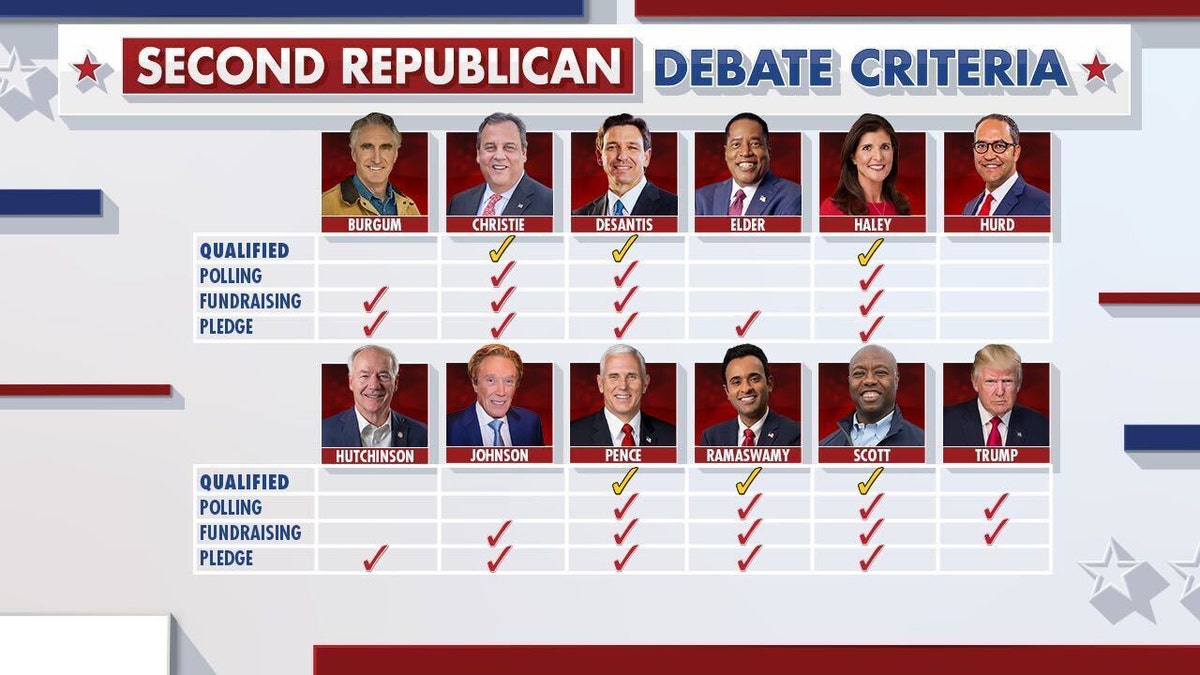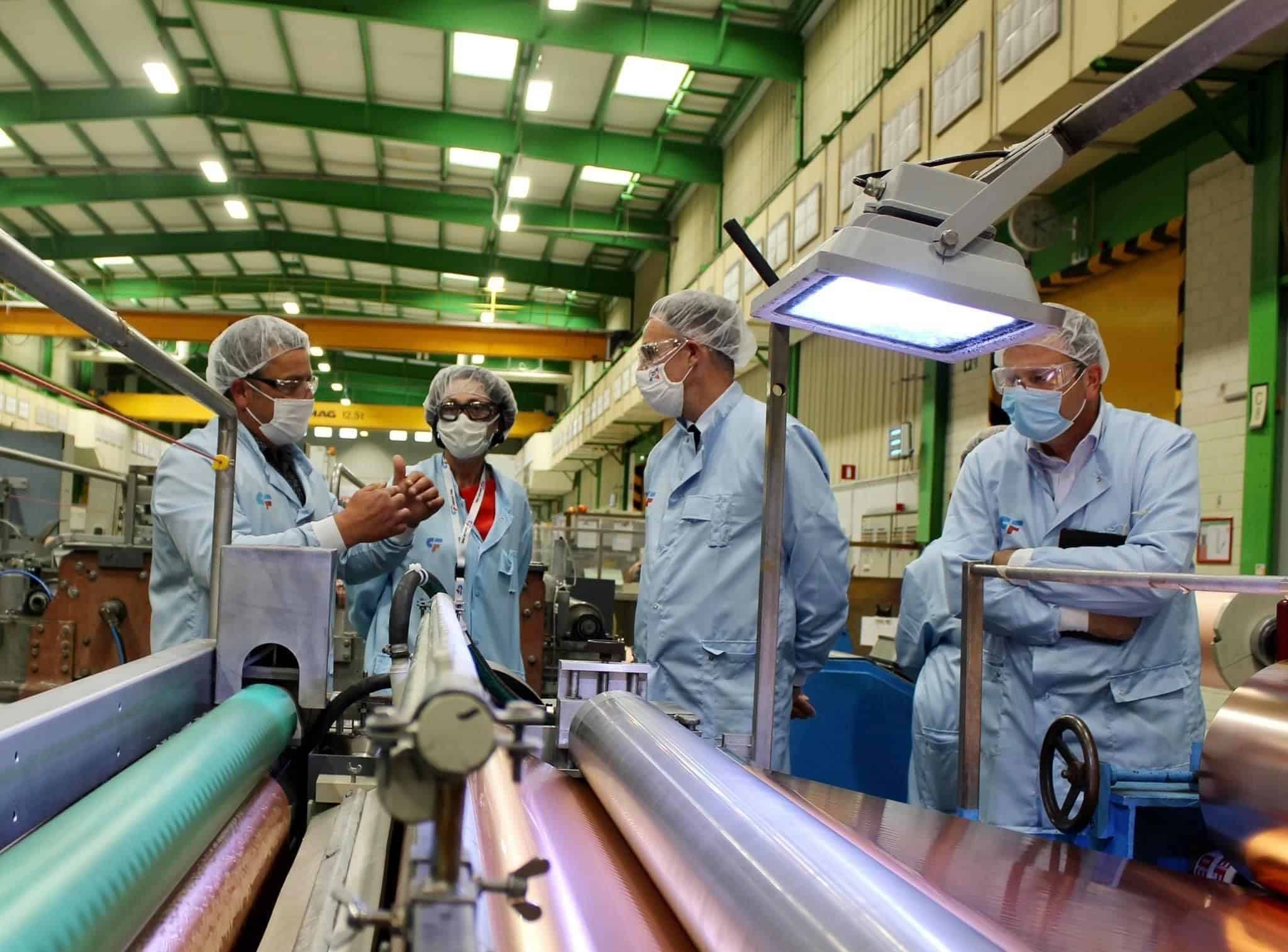Trump's Second Term: An Examination Of Presidential Pardons

Table of Contents
The Scope of Presidential Pardon Power Under a Hypothetical Second Term
A second Trump term would have dramatically altered the landscape of presidential pardons. The sheer volume and potential impact of such actions warrant careful consideration.
Expanded Opportunity for Pardons
- Increased Time: Four additional years would have provided significantly more time to issue pardons, potentially leading to a far greater number than during his first term.
- Controversial Pardons: The potential for controversial pardons would have increased dramatically. His first term already saw pardons that sparked intense public and political debate. A second term could have amplified this trend.
- Volume of Requests: The sheer number of pardon requests received by the White House is substantial. A second term would likely have seen an even larger influx, straining resources and potentially leading to less thorough vetting.
- Lack of Clear Guidelines: The absence of clear, consistent criteria for granting pardons adds to the uncertainty. The process is largely opaque, allowing for significant discretion and raising concerns about potential bias.
Political Motivations and Strategic Pardons
Trump's first term offered glimpses into his approach to pardons. Many saw them as politically motivated, designed to reward allies or silence critics. A second term might have solidified this pattern.
- Rewarding Allies: Pardons could have been used to reward individuals loyal to the Trump administration, fostering political loyalty and potentially undermining the impartiality of the justice system.
- Silencing Critics: Individuals who publicly criticized Trump or his administration might have become targets for potential pardons offered in exchange for silence or cooperation.
- Controversial Precedents: The pardons of Roger Stone and Michael Flynn during his first term serve as examples of the potential for controversial and politically charged decisions. These actions foreshadowed what a second term might have entailed.
- Impact on Justice: The perceived politicization of the pardon process can severely damage public trust in the judicial system and the integrity of legal proceedings.
Potential Impacts on Key Cases and Individuals
The implications of a second Trump term extend to specific cases and individuals. The potential for high-profile pardons and their impact on ongoing investigations would have been profound.
High-Profile Cases and Their Outcomes
Several individuals, embroiled in high-profile legal battles, were potential targets for presidential pardons.
- Potential Pardon Targets: Speculation surrounded potential pardons for individuals facing serious charges, including those involved in investigations related to the Trump administration.
- Legal Ramifications: Granting pardons to such high-profile individuals could have had significant legal ramifications, potentially impacting ongoing investigations and prosecutions.
- Public Reaction: Anticipation of such pardons would have generated intense public and media scrutiny, further polarizing the political climate.
- Legal Challenges: Controversial pardons could face legal challenges, raising important constitutional questions about the limits of presidential power.
Impact on Ongoing Investigations and Trials
A second term could have had far-reaching implications for ongoing investigations and trials.
- Influence on Investigations: Pardons could have been used to influence ongoing investigations, potentially shielding individuals from accountability and obstructing justice.
- Obstruction of Justice: The use of pardons to obstruct justice is a serious ethical and legal concern, potentially leading to further legal battles and undermining the integrity of the legal process.
- Ethical Considerations: The ethical dimensions of using presidential pardons to impede justice are deeply troubling and warrant careful consideration. The public's perception of fairness and equity is at stake.
Legal and Ethical Considerations Surrounding Presidential Pardons
The power of presidential pardons is not unlimited. Legal and ethical concerns inherently accompany its use.
Limitations and Checks on Presidential Pardon Power
While significant, the President's pardon power is not absolute.
- Constitutional Limits: The Constitution outlines certain limitations on the presidential pardon power, primarily that it only applies to federal offenses.
- Judicial Review: The courts have the power to review the legality of a pardon, though rarely exercise this power directly.
- Historical Precedents: Examining historical precedents concerning presidential pardons offers valuable insights into the boundaries and interpretations of this power.
Ethical Concerns and Public Perception
The ethical dimensions of presidential pardons are central to their impact.
- Ethical Debate: The ongoing debate surrounding the ethical use of presidential pardons reflects deep-seated concerns about fairness, justice, and accountability.
- Public Trust: The use of pardons to protect political allies or obstruct justice can severely damage public trust and confidence in the government.
- Transparency and Accountability: Promoting transparency and accountability in the pardon process is crucial for maintaining public faith in the integrity of the justice system.
Conclusion
A hypothetical Trump second term would have presented a significant expansion of the presidential pardon power, potentially leading to a wave of controversial pardons. The sheer scope of his potential actions, combined with the inherent ambiguities and political dimensions of the pardon process, raises vital questions about its use, its impact on the rule of law, and the long-term implications for American justice. Understanding the intricacies of presidential pardons, especially in the context of a second term by a controversial figure like Donald Trump, is crucial for informed civic engagement. Continue to explore this complex topic and delve deeper into the meaning and ramifications of presidential pardons.

Featured Posts
-
 Nba Fans React To Jimmy Butlers Injury Impact On Warriors Rockets Game 4
May 15, 2025
Nba Fans React To Jimmy Butlers Injury Impact On Warriors Rockets Game 4
May 15, 2025 -
 Gescheiterte Schlichtung Bei Der Bvg Was Bedeuten Streik Und Drohende Entlassungen
May 15, 2025
Gescheiterte Schlichtung Bei Der Bvg Was Bedeuten Streik Und Drohende Entlassungen
May 15, 2025 -
 Mlb Daily Fantasy Baseball May 8th Picks Sleepers And Avoid
May 15, 2025
Mlb Daily Fantasy Baseball May 8th Picks Sleepers And Avoid
May 15, 2025 -
 Connor Hellebuycks Goaltending Prowess A Contender For The Hart Trophy
May 15, 2025
Connor Hellebuycks Goaltending Prowess A Contender For The Hart Trophy
May 15, 2025 -
 Game 3 Celtics Playoff Road Trip Begins In Orlando
May 15, 2025
Game 3 Celtics Playoff Road Trip Begins In Orlando
May 15, 2025
